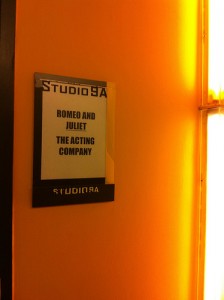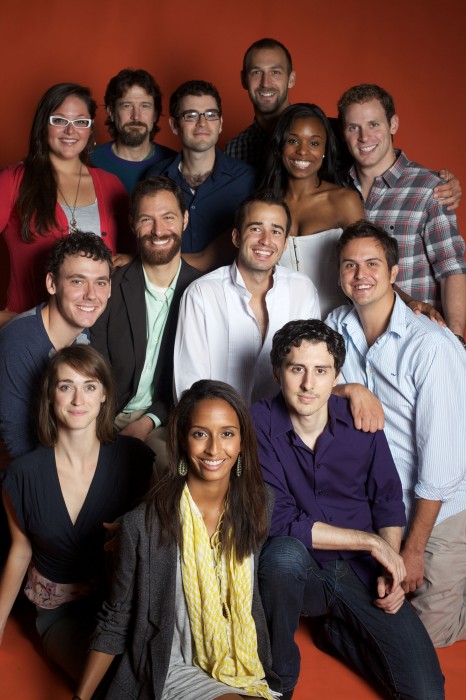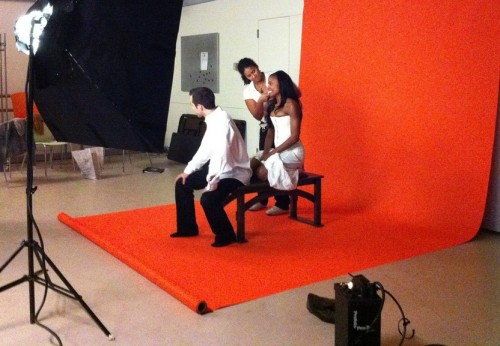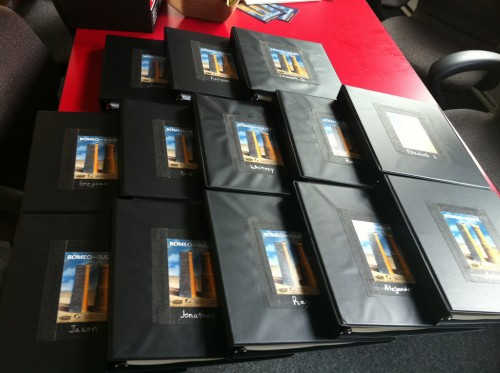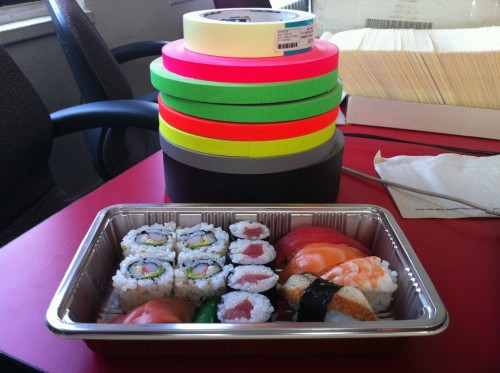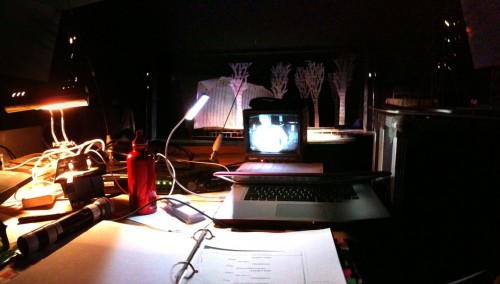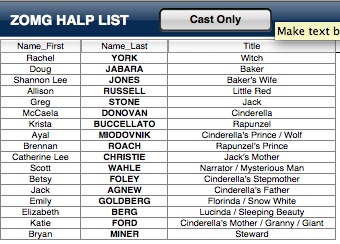Today I received an email with a few photos from the production of Music Man I did this summer. I viewed them on my phone while sitting at lunch with my cast and colleagues. This one in particular caught my attention:
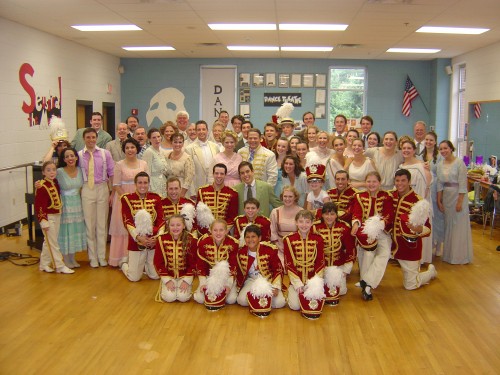
This was my cast. Sixty people. At the time, it was simply a large-ish cast, but with the distance of several months — and several shows — since then, I had forgotten just what it’s like to do such a big show.
Managing 13 actors and 5 crew is nothing, I don’t care how far we’re going or how many different plays we’re performing!


